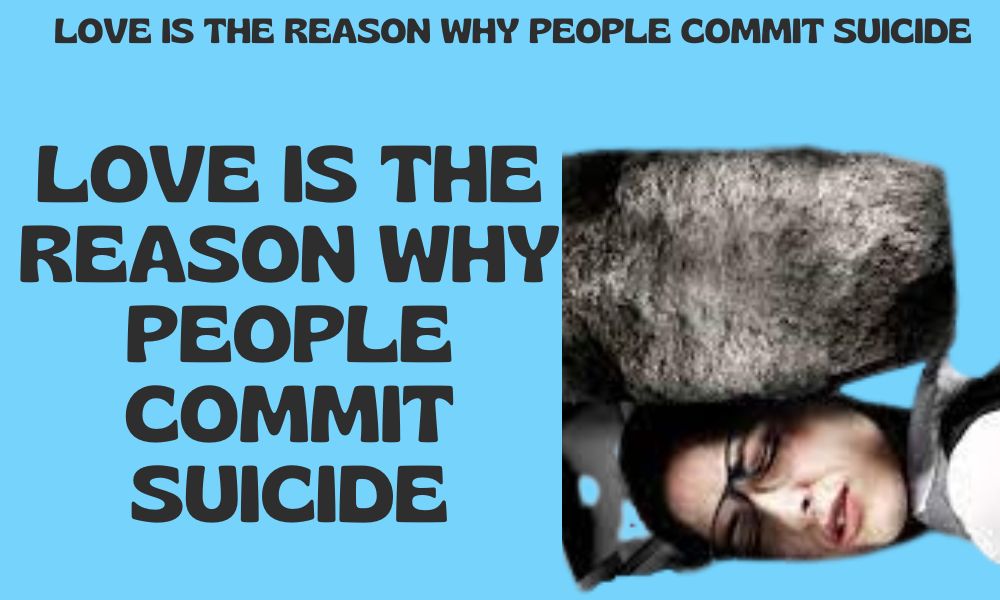Love is the reason why people commit suicide
No, love is not the only reason why people commit suicide. While it can be a contributing factor in some cases, there are many other complex and interrelated factors that can lead to suicide, including mental health issues, such as depression and anxiety, chronic physical pain, substance abuse, financial problems, and life events such as job loss, relationship problems, and other forms of trauma.
It’s important to remember that suicide is a serious issue and should not be taken lightly. If someone you know is struggling with suicidal thoughts, it is essential to seek help and support. This can include talking to a trusted friend or family member, seeing a mental health professional, or contacting a crisis helpline for support.
What is suicide?
Suicide is the act of intentionally ending one’s own life. It is a serious public health issue that can have devastating consequences for individuals, families, and communities. Suicide is often the result of complex and interrelated factors, including mental health issues, such as depression and anxiety, chronic physical pain, substance abuse, financial problems, and life events such as job loss, relationship problems, and other forms of trauma.
Suicide is a complex and preventable phenomenon that requires a comprehensive approach that involves addressing the root causes of suicide and providing support and resources to those who may be struggling with suicidal thoughts or behaviors. This can include early intervention and treatment for mental health issues, providing access to support networks and resources, and promoting awareness and education about suicide prevention.
Love is the reason why people commit suicide
Suicide is a great sin.
Suicide is a complex and sensitive issue that is viewed differently across different cultures and belief systems. While some religious or cultural traditions may view suicide as a sin, others may view it as a result of mental health issues or external factors beyond an individual’s control.
Regardless of cultural or religious beliefs, it is important to approach the topic of suicide with compassion and understanding, and to recognize that individuals who are struggling with suicidal thoughts or behaviors may be in a great deal of pain and in need of support.
If someone you know is struggling with suicidal thoughts, it is important to reach out to them and offer support. This can include listening to their concerns, connecting them with mental health resources, and encouraging them to seek professional help. The National Suicide Prevention Lifeline is a free and confidential service available 24/7 in the US, and can be reached at 1-800-273-TALK (8255).
Love is the reason why people commit suicide
Cause of suicide.
Suicide is a complex phenomenon that is caused by a combination of factors. Some common causes of suicide include:
Mental health conditions: Depression, anxiety, and other mental health conditions are some of the most common risk factors for suicide.
Substance abuse: Substance abuse and addiction can increase the risk of suicide by impairing judgment, increasing impulsivity, and exacerbating mental health symptoms.
Chronic physical pain: Chronic pain and physical health problems can contribute to feelings of hopelessness and increase the risk of suicide.
Life events: Traumatic life events such as loss of a loved one, relationship problems, financial difficulties, or job loss can increase the risk of suicide.
Access to lethal means: Access to firearms or other lethal means can increase the risk of suicide, especially in combination with other risk factors.
Family history of suicide: A family history of suicide can increase the risk of suicide, potentially due to a combination of genetic and environmental factors.
It is important to remember that suicide is preventable, and that early intervention and treatment can help individuals at risk to overcome their challenges and find hope for the future. If you or someone you know is struggling with suicidal thoughts, it is important to seek help and support right away.
Public Health A Guide to Protecting Our Communities

